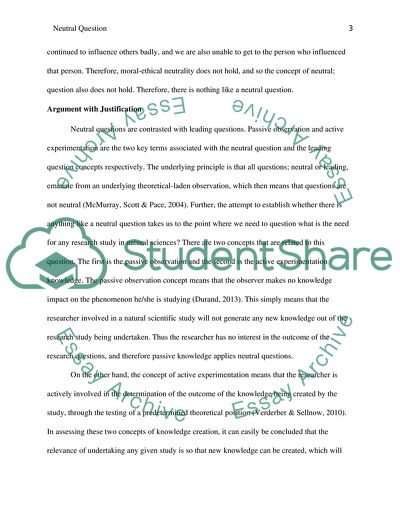Cite this document
(There is No Such Thing as a Neutral Question Essay, n.d.)
There is No Such Thing as a Neutral Question Essay. https://studentshare.org/english/1861349-theory-of-knowledge-essay
There is No Such Thing as a Neutral Question Essay. https://studentshare.org/english/1861349-theory-of-knowledge-essay
(There Is No Such Thing As a Neutral Question Essay)
There Is No Such Thing As a Neutral Question Essay. https://studentshare.org/english/1861349-theory-of-knowledge-essay.
There Is No Such Thing As a Neutral Question Essay. https://studentshare.org/english/1861349-theory-of-knowledge-essay.
“There Is No Such Thing As a Neutral Question Essay”. https://studentshare.org/english/1861349-theory-of-knowledge-essay.


